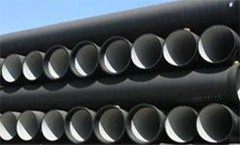Sewage pipes are required for meeting the ever-increasing stringent demands imposed by modern-day underground drainage systems. Rainwater and snow melts can be drained by building drainage systems via gutters and downpipes to the site drainage of the main building. During construction of a road, the surface water from rain or snowfall gets collected and absorbed by drainage systems for preventing damage to the structure and danger to traffic. Pipes having smoother inner surfaces and circular profiles on the outer side are particularly used in road and tunnel construction along within drainage of the building sites. Assessment of pipes is never an activity that people usually like to take upon but it is usually forced upon us when the toilets refuse to flush and instead of going down, wastewater comes up.
The dreaded activity which destroys landscaping costs a huge amount and accomplishes nothing rather than allowing you to return to normal life is the digging up and replacing your sewer pipes. You can minimize the pain a bit by understanding what kind of sewer pipe you have as you will get to know whether you can continue with the same pipe or choose another pipe instead. At many instances of time the type of sewer pipe running through your yard corresponds with how old your house is. In the case of older houses that were built before the 1950s, you will be able to find cast-iron pipes, clay pipes, or a fiber conduit known as Orangeburg. Being the oldest types of sewer piping, clay and cast-iron pipes can remain in the ground as long as the waste is still passing through it with no leaks. It is worth replacing Orangeburg sewer pipes if you are having open ground. Plastic pipes were also used in older homes. With the wearing of the years, sewer systems started to deteriorate. When the replacement takes place, it mainly starts with plastic pipes.
Ductile iron sewerage network pipes like the clay pipes are prevalent in modern homes too and have been there in use for a long time. Ductile iron pipes are extremely strong. A sewer pipe of four-inch diameter can withstand over two tons of pressure per linear foot whereas clay, PVC and ABS pipes are all subject to get broken. They are heavy and difficult for you to cut them up on yourself. You will require a soil pipe cutter for cutting a cast-iron pipe in the ground which is a specialty tool that can be rented from supply houses for a small fee. These pipes are non-flammable and this is not an issue for below-ground installations; but you need to decide to continue the ductile-iron into the house, you can feel secure knowing that the ductile-iron pipe will not melt in a fire. We supply a superior class of Ductile Iron Sewage Network Pipes and Fittings.

DI Pipes & Fittings